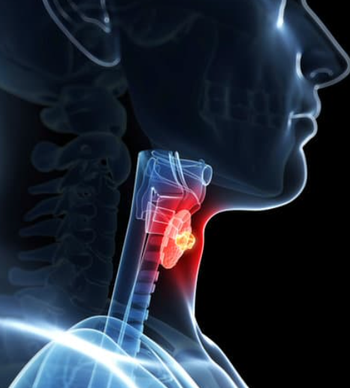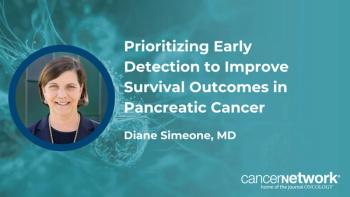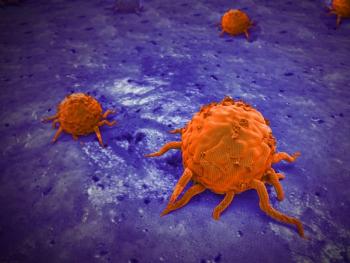
Oncology NEWS International
- Oncology NEWS International Vol 4 No 3
- Volume 4
- Issue 3
Protease Inhibitors Temporarily Suppress HIV Replication
WASHINGTON--In the short term, protease inhibitors are quite effective at stopping replication of HIV, thus permitting recovery of the immune system, but, as with other anti-HIV agents, resistance eventually develops and effectiveness wanes, researchers reported at the 2nd National Conference on Human Retroviruses and Related Infections.
WASHINGTON--In the short term, protease inhibitors are quite effectiveat stopping replication of HIV, thus permitting recovery of theimmune system, but, as with other anti-HIV agents, resistanceeventually develops and effectiveness wanes, researchers reportedat the 2nd National Conference on Human Retroviruses and RelatedInfections.
Protease inhibitors under development include Abbott's ABT-538,Merck's L524, and Agouron's AG1343. Abbott researchers reportedthat ABT-538 halted 99% of HIV replication and reduced the numberof circulating virus particles by 70% to 99%. With the virus reduced,T cell counts recover, generally by 100/mL or more after 3 months.
In patients studied to date, resistance to ABT-538 generally developswithin months, although some patients have yet to develop resistanceafter 6 months of treatment, according to Abbott.
In phase I studies of Agouron Pharmaceuticals' AG1343, moderateoral doses resulted in sustained plasma drug levels, well in excessof those required to inhibit replication of HIV, as determinedby preclinical experiments. Agouron presented results of two randomized,double-blind studies of the agent carried out in healthy volunteersat Besselaar Clinical Research Unit, Leeds, England. The agentwas well tolerated in both groups.
"Oral dosing of AG1343 two or three times a day for a totaldose of less than 1 g/day results in plasma drug levels 15 to75 times higher than required in vitro to suppress HIV replication,"said Dr. Barry D. Quart, Agouron's vice president, regulatoryaffairs, who presented the data.
Dr. Quart pointed out that in preclinical animal studies, a singleoral dose of AG1343 resulted in drug concentrations in lymph nodeseight times higher than in plasma. This is important since "wenow know that lymph nodes are a critical reservoir for HIV,"he said.
Combining protease inhibitors that have different resistance patternsor combining these new agents with reverse transcriptase inhibitorsmight eventually be used to help overcome drug resistance.
New studies of combination therapy with the reverse transcriptaseinhibitors AZT (zidovudine, Retrovir) and 3TC (lamivudine), anexperimental agent from Glaxo, look especially promising, perhapsbecause virus mutants resistant to one drug are not resistantto the other.
Preliminary results from four US and European studies showed asynergistic effect in raising CD4 levels when the two agents weregiven together; this effect proved stronger than that seen witheither drug alone and may prove stronger than the FDA-approvedcombination of AZT and ddC (zalcitabine, Hivid).
Articles in this issue
about 31 years ago
Selecting a Support Group for Patients With Prostate Carcinomaabout 31 years ago
Antman Provides Outlook on Use of High-Dose Chemoabout 31 years ago
Radiofrequency Ablation of Brain Tumors New Optionabout 31 years ago
Oncologist Enthusiastic About Capitated Planabout 31 years ago
Varmins Chooses New Director for NIH Office of Alternative Medicineabout 31 years ago
'Visible Man' Hits the Internet, Radiologists Get the First Lookabout 31 years ago
Ultrafast Full-Body MRI Eases Procedure in Claustrophobics, KidsNewsletter
Stay up to date on recent advances in the multidisciplinary approach to cancer.



















































